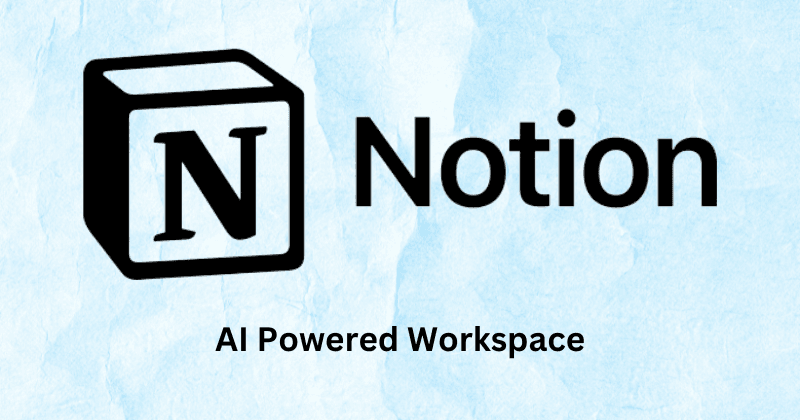I’ve been using Notion for over four years now. What started as a note-taking app evolved into my all-in-one dashboard for personal life, freelancing, and even project management. In early 2025, Notion rolled out a major upgrade to its AI engine — and I had to try it.
After 45 days of integrating Notion AI 2025 into my daily routine, I have a lot to say. Is it the assistant we’ve all been waiting for, or just a fancy autocomplete? Let’s break it down from a real user’s perspective.
1. Onboarding: Fast, Simple, and Smart
Notion AI doesn’t waste your time. The onboarding walkthrough took about 3 minutes, and within 10, I was generating summaries, rewriting drafts, and building auto-synced templates.
✅ What impressed me:
Voice-to-task: Dictate, and it creates actionable to-dos
Smart suggestions that adapt based on workspace history
No need for plug-ins—AI is native and context-aware
❌ What could improve:
No dark mode-specific AI feedback window
Occasional lag when working in large databases
2. Writing Assistance: Fluid, Personalized, and Context-Savvy
This is where Notion AI shines. Unlike ChatGPT or other assistants that work in a vacuum, Notion AI learns from your notes, tone, and tags. When I asked it to summarize my meeting notes, it pulled names, deadlines, and even flagged ambiguous items.
Top Use Cases I Loved:
Summarizing long notes into bullet points
Turning rough thoughts into polished copy
Auto-generating action items and project steps
I even used it to draft this blog post outline. 😅
New in 2025:
Multilingual editing (I drafted in French and translated fluently to English)
Auto-formatting blog posts with H2s, links, and SEO-ready structure
Citation assist for academic users
3. Planning & Productivity Features: AI Gets Proactive
Here’s what surprised me: Notion AI isn’t just reactive—it’s proactive.
Every Monday, it:
Recaps my past week’s wins and misses
Suggests priorities for the new week
Flags overlapping deadlines and dependencies
It’s like having a smart project manager quietly running in the background.
🎯 Best Planning Features:
“AI Smart Weekly Planner” blocks time based on urgency
Goal tracking that checks for completion patterns
Contextual reminders (based on past delays or bottlenecks)
4. Collaboration Tools: Helpful, But Not Perfect Yet
If you’re working in a team, Notion AI does a decent job managing group spaces. It can:
Summarize team discussions into minutes
Suggest follow-ups
Auto-draft meeting agendas based on past projects
But it still struggles with:
Detecting passive-aggressive tone 😄
Handling heavily nested comments or side conversations
Still, it saves time. I tested it in a 5-person team working remotely, and it reduced our meeting prep time by 40%.
5. Pricing: Is Notion AI Worth the Subscription?
Notion AI is not free, and that’s worth noting.
💰 2025 Pricing Snapshot:
| Plan | Monthly Cost | Worth it? |
|---|---|---|
| Free Plan | $0 | No AI included |
| Plus AI | $15/mo | Best for solo creators |
| Team AI | $25/user/mo | Pricey, but powerful for teams |
In my case, I moved from ChatGPT + Google Docs + Trello → to just Notion AI, so the cost justified itself. But if you’re a casual user? You might not need the upgrade.
Final Verdict: Worth It? Definitely — If You Use It Right
Notion AI 2025 is not just a tool — it’s a workflow transformer. It won’t replace human insight, but it removes the friction of organizing, writing, planning, and following through.
✅ Great for: Writers, freelancers, project managers, students, productivity nerds
❌ Not for: Passive users, minimalist note-takers, or those who just want a to-do list
TL;DR – Notion AI 2025 Review Summary
| Category | Rating |
|---|---|
| Writing Help | ⭐⭐⭐⭐⭐ |
| Productivity Boost | ⭐⭐⭐⭐☆ |
| Collaboration | ⭐⭐⭐⭐ |
| Value for Money | ⭐⭐⭐⭐ |
| Ease of Use | ⭐⭐⭐⭐⭐ |
FAQs
Q: Can Notion AI work offline?
A: No. You’ll need an active internet connection to access AI features.
Q: How does it compare to ChatGPT or Gemini?
A: It’s more task-focused and context-aware than generic LLM tools.
Q: Can I export AI-generated content for WordPress?
A: Yes, you can export as Markdown or HTML, perfect for blog publishing.



